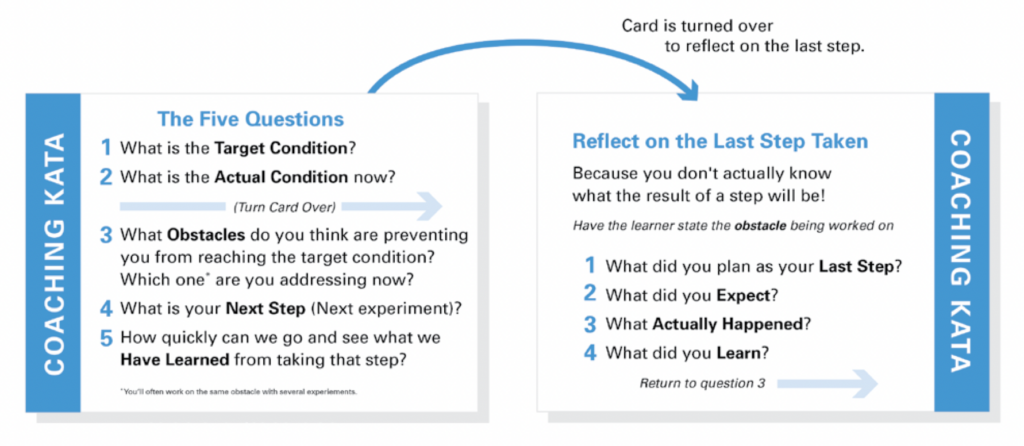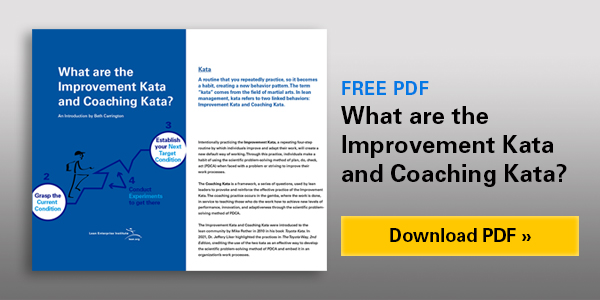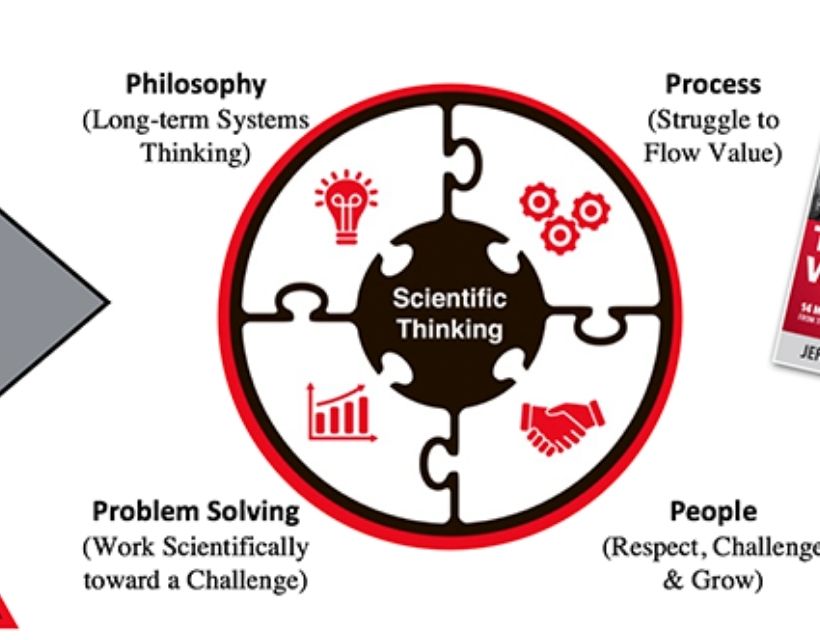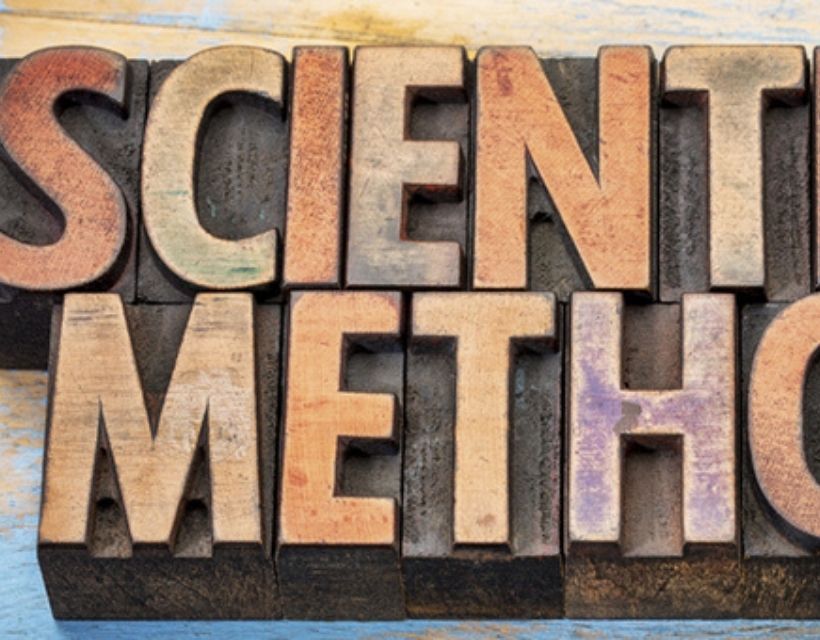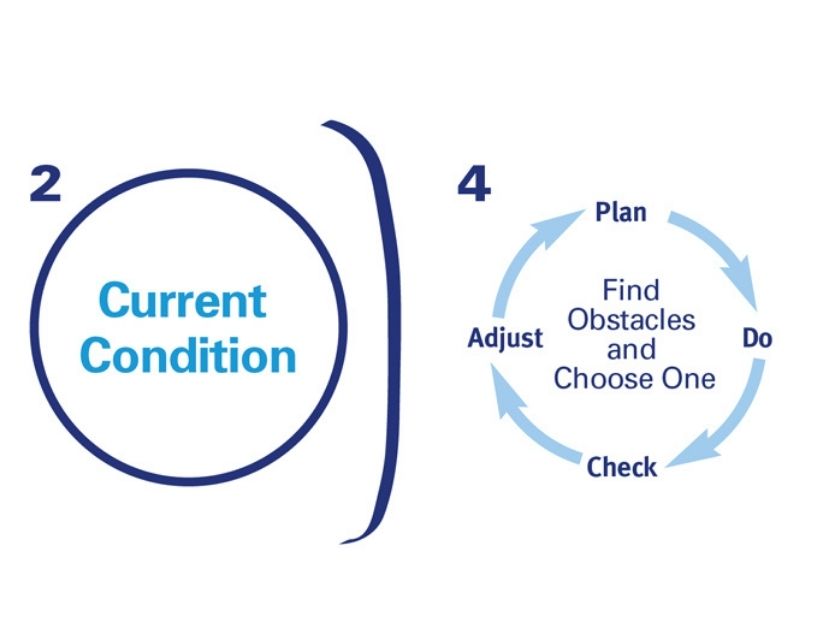Kata
A kata typically refers to fundamental movements in Japanese martial arts, but can refer to any basic form, routine, or pattern of behavior. Recognizable patterns of behavior and clear expectations make it easy to recognize abnormalities (problems) and also serve as a basis of improvement, setting and attaining higher standards.
In lean management, kata refers to two linked behaviors: improvement kata and coaching kata.
The Improvement Kata and Coaching Kata were introduced to the lean community by Mike Rother in 2010 in his book Toyota Kata. In 2021, Dr. Jeffery Liker highlighted the practices in The Toyota Way, 2nd Edition, crediting the use of the two kata as an effective way to develop the scientific problem-solving method of PDCA and embed it in an organization’s work processes.
The Improvement Kata
This is a repeating four-step routine by which an organization improves and adapts. It makes continuous improvement through the scientific problem-solving method of plan, do, check, act (PDCA) a daily habit.
The four steps in the that a process owner, aka the learner, practices are as follows:
- Create a Challenge (goal or objective) in your work that, if you achieve, will help move the organization toward its Vision.
- Grasp your work process’ current condition as it relates to your Challenge by collecting facts and data.
- Set a Target Condition to achieve in two weeks that moves you toward meeting your Challenge.
- Conduct experiments to learn how to overcome obstacles in the way of achieving the Target Condition.
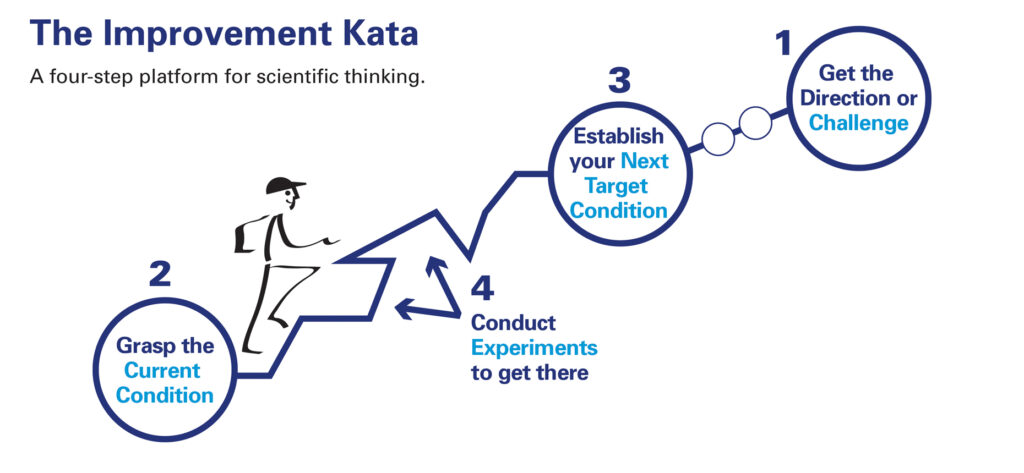
Intentionally practicing the Improvement Kata will create a new default way of working. Through this practice, individuals make a habit of using the scientific problem-solving method of plan, do, check, act (PDCA) when faced with a problem or striving to improve their work processes.
The Coaching Kata
This is the repeating routine by which lean leaders and managers teach the Improvement Kata to everyone in the organization. It is a framework, a series of questions, used by lean leaders to provoke and reinforce the effective practice of the Improvement Kata. The coaching practice occurs in the gemba, where the work is done, in service to teaching those who do the work how to achieve new levels of performance, innovation, and adaptiveness through the scientific problem- solving method of PDCA.
The five questions of the Coaching Kata, asked of the learner by a coach, guide the learner through the desired scientific PDCA thought pattern. During the coaching session, the teacher or coach also gives the learner procedural guidance—not solutions—that help the learner successfully overcome obstacles.
